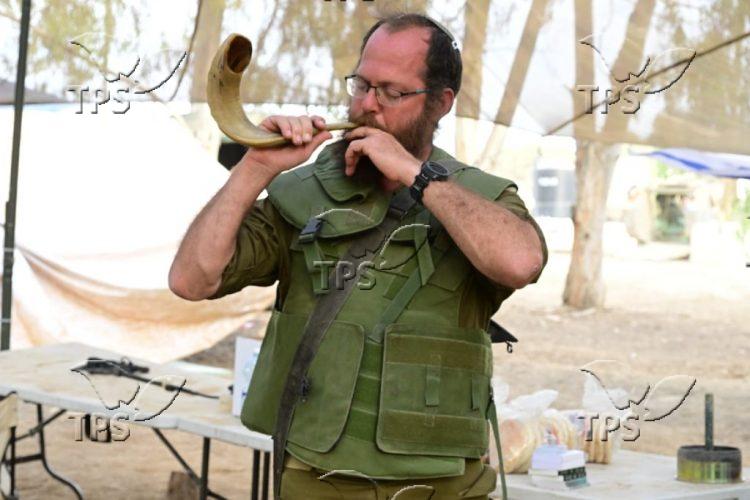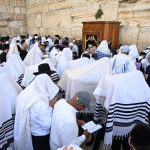A Blast of Hope: The Shofar’s Message to ‘Never Give Up’
Jerusalem, 5 September, 2024 (TPS-IL) -- Towards the end of morning prayers, the man wearing the prayer shawl lifts the ram’s horn to his lips and blows.
One single unbroken blast. Three short blasts. Several staccato blasts. And then one extended, unbroken blast.
During the month leading up to the Jewish High Holidays, the shofar, or ram’s horn, is traditionally blown at the end of weekday morning services.
“Throughout the year we often get distracted and lose track of what’s important to us, what our most meaningful goals are, and the shofar is meant as a wake-up call and to remind us that we have higher ideals, higher aspirations, higher goals, and to refocus on those as we approach the New Year,” Rabbi Shimon Apisdorf explained to The Press Service of Israel.
Apisdorf is an author, educator and founder of Operation Home Again, a Jerusalem-based non-profit organization that encourages community-based immigration to Israel.
The horn evokes the Binding of Isaac when God commanded Abraham to prepare his son as a sacrifice. At the last moment, Abraham was told to sacrifice a ram whose horns were caught in a nearby thicket.
“Abraham went through 10 tests in his life,” with the Binding of Isaac being the final one, Apisdorf explained. “Each test was meant to take him on another step towards actualizing his personal potential. And the ram’s horn is reminiscent of that task and understanding that life is a process. Just like Abraham went through a 10-step process to reach the summit of his potential, everyone goes through a process, step by step by step, to the summit of our personal potential.”
‘Never Give Up’
One message of the shofar is to “never give up,” Apisdorf stressed. “And that is a universal message. The Jewish people have always believed, not just in ourselves as a people, but in the collective potential of mankind,” he told TPS-IL.
“Outside of the United Nations building in New York, there’s a wall called the Isaiah Wall and inscribed on that wall are the words from the prophet Isaiah, ‘They shall beat their swords into plowshares and their spears into pruning hooks. Nation shall not lift up sword against nation. Neither shall they learn war any more.’ And the shofar is an annual reminder that even if every human being loses sight of who and what we can be, we will always have the opportunity to wake up to who we really are,” he said.
For Israel, the attack of October 7 was also like a giant shofar blast. “The fabric of Israeli society was fraying. Since then, and up until this very day, there has been a dramatic change within Israeli society, where even though people still have political or philosophical outlook on various issues, they feel a tremendous sense of shared destiny and commitment to one another’s well-being,” Apisdorf said.
“October 7 woke us up collectively as a nation.”
Rosh HaShanah, the Jewish new year, begins at sundown on October 2.







